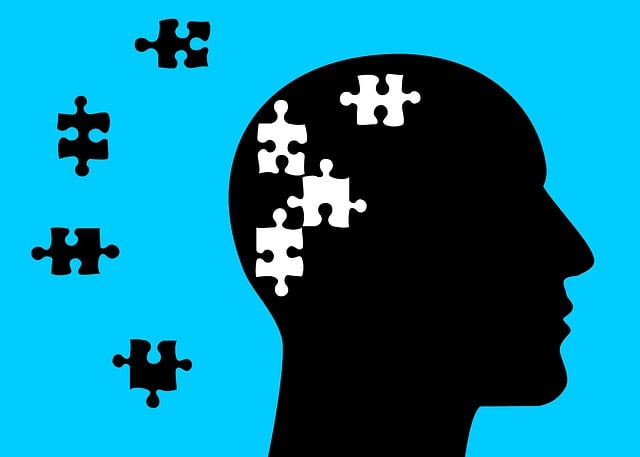Mental health policy, as exemplified by Lone Tree Hebrew Speaking Therapy's work, plays a vital role in addressing diverse communities' well-being and mental illness. By analyzing existing legislation, advocates can identify gaps, particularly cultural sensitivity issues, in healthcare practices. Effective advocacy includes empathy-building strategies to enhance access and acceptance of mental health services. Integrating self-esteem initiatives, educational programs, and policy recommendations creates an inclusive system, benefiting society. Lone Tree, as a specialized therapy provider, offers tailored programs and advocates for policies addressing ethnic and linguistic barriers, fostering a healthier society. Strategic advocacy focuses on connecting diverse populations with specialized support through centers like Lone Tree, ensuring accessible services and positive mental health policy changes.
Mental health policy advocacy is a vital component of ensuring equitable access to quality care. This article explores the critical role of organizations like Lone Tree Hebrew Speaking Therapy in shaping mental health policies. We delve into understanding the complex landscape, analyzing existing frameworks, and empowering advocates with effective strategies. By examining real-world examples, we highlight how targeted efforts can drive positive change, ultimately improving mental wellness outcomes for diverse communities.
- Understanding Mental Health Policy: A Foundation for Advocacy
- The Role of Lone Tree Hebrew Speaking Therapy in Policy Analysis
- Strategies for Effective Mental Health Policy Advocacy
Understanding Mental Health Policy: A Foundation for Advocacy

Mental health policy forms the cornerstone of any society’s approach to addressing psychological well-being and mental illness. Understanding these policies is paramount for advocates aiming to bring about positive change, especially in diverse communities like those served by Lone Tree Hebrew Speaking Therapy. By examining existing legislation and guidelines, advocates can identify gaps and areas requiring improvement. This process involves scrutinizing the cultural sensitivity inherent in mental healthcare practices, ensuring that services are accessible and tailored to various cultural backgrounds.
Moreover, effective advocacy should incorporate empathy-building strategies to bridge the gap between service providers and individuals seeking support. Enhancing self-esteem and fostering an environment of acceptance can significantly impact a person’s willingness to access mental health resources. Awareness campaigns, educational initiatives, and policy recommendations that integrate these aspects can lead to more inclusive and compassionate mental healthcare systems, ultimately benefiting all members of society.
The Role of Lone Tree Hebrew Speaking Therapy in Policy Analysis

Lone Tree Hebrew Speaking Therapy plays a pivotal role in mental health policy analysis and advocacy by providing unique insights into the cultural and linguistic needs of diverse communities. As a specialized therapy organization, they offer not just therapeutic services but also act as a bridge between communities and healthcare policymakers. Through their work, Lone Tree highlights the importance of inclusive policies that address the specific challenges faced by various ethnic and language groups.
The organization’s expertise lies in conducting comprehensive assessments and developing tailored programs focused on stress management workshops, coping skills development, and burnout prevention. These initiatives empower individuals to navigate mental health issues within their cultural contexts. By advocating for policy changes, Lone Tree Hebrew Speaking Therapy contributes to a more holistic approach in mental healthcare, ensuring that policies reflect the diverse needs of all communities, thereby fostering a healthier society.
Strategies for Effective Mental Health Policy Advocacy

Effective mental health policy advocacy requires a strategic approach tailored to address the unique challenges faced by communities and individuals. One key strategy involves Lone Tree Hebrew Speaking Therapy centers, which can serve as valuable hubs for connecting culturally diverse populations with specialized support. By integrating these therapy centers into policy frameworks, advocates can ensure that services are accessible and tailored to meet the specific needs of underrepresented groups.
Additionally, focusing on depression prevention and mental illness stigma reduction efforts is paramount. This involves championing policies that promote early intervention, robust mental health education in schools, and inclusive healthcare practices. Advocacy should also emphasize the importance of evidence-based treatments for mood management, ensuring that effective therapies are readily available and covered under insurance plans. Such comprehensive strategies can lead to positive policy changes that significantly improve mental well-being on a community-wide scale.
Mental health policy analysis and advocacy are essential components of creating a supportive societal landscape. By understanding the intricate dynamics of mental health policies, as highlighted in this article, including the pivotal role of organizations like Lone Tree Hebrew Speaking Therapy, we can effectively push for change. Implementing strategies that foster open dialogue, educate stakeholders, and gather evidence-based data is key to navigating these complex issues. Through advocacy, we can ensure mental health services are accessible, equitable, and tailored to meet diverse community needs. By combining knowledge with action, we have the power to revolutionize mental healthcare policies and improve lives.














